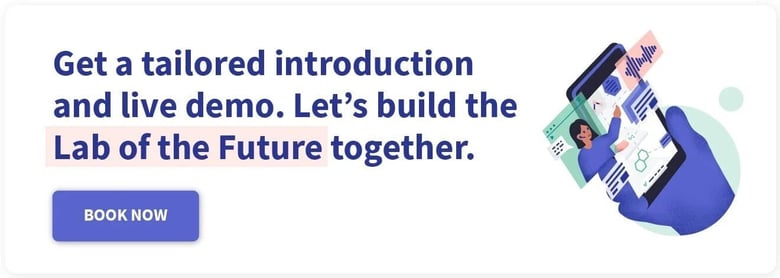Aline Betancourt has founded three biotech companies, including VITAbolus, and is also Adjunct Associate Professor, Medicine and Microbiology at Tulane University in the U.S. She is a recognized cell therapy expert with over 20 years of experience and recently sold her first patented stem cell technology. We sat down with Aline to talk about how she uses LabTwin’s digital lab assistant at VITAbolus to help develop a proprietary, inexpensive stem cell pill.
Why did you decide to start using LabTwin’s voice-powered digital lab assistant?
I love adopting promising new technology and a lab voice assistant seemed like more than a promising concept. It's an awesome one!
How were you managing lab documentation before LabTwin?
Apart from the conventional physical input into a lab notebook, I collected data, protocols and spec sheets on cloud storage services like Dropbox and Google Drive.
Was LabTwin easy to set up? Is the app easy to use?
The app is easy to use. Set up required the third party TestFlight app which was also straightforward to use.
What do you like most about LabTwin’s voice-powered digital lab assistant?
The best things about LabTwin are the ability to set up a timer and take notes by voice or have the voice assistant read protocol notes out loud to you. These features ensure that there will be accurate recording of experimental steps but even more importantly, for us, LabTwin helps minimize contamination in the mammalian tissue culture suite.
What features would you like us to add to LabTwin?
I suggest a calculator of molarity, concentrations, and reagent formulations and preparations to prevent common calculation errors in the lab. (Note from the author: LabTwin is currently working on a calculations tool).
What benefits has LabTwin’s digital lab assistant provided for your research?
It literally frees my hands to do the "hands-on" work in the tissue culture hood because it takes my notes for me so I can easily add them to my protocol write-ups.
What kind of work would you say LabTwin is suited for?
I think it has many applications and not only in the life science fields but also in engineering labs and surgery theaters, hospitals, and medical offices.
What are your thoughts on LabTwin's impact on research efficiency and reproducibility?
LabTwin allows me to take more accurate real time annotation of all the procedures being done in the lab thus minimizing skipped or lost notes, but the most effective use is allowing me to dictate and start a timer by voice rather than cross contaminating things when my hands are gloved.
In your opinion, how will a voice-powered product like LabTwin contribute to the Lab of the Future?
I love LabTwin because it really makes labs safer and saves time. It makes labs safer by having more accurate, real-time, reliable notes on experimental details - thus allowing greater reproducibility, and preventing contamination by not requiring re-gloving every time one has to start a timer or reach for a pen to write. It saves time by not having to record experimental details twice.











